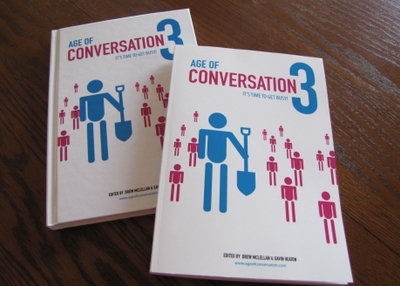How Vision Drives Success: Wisdom from W. Clement Stone
July 21st 2011 19:43
A Blueprint for Achieving Your Dreams
Shortly before his death at age 100, Chicago financier and philanthropist W. Clement Stone was asked the question, âHow have you done so much in your lifetime?â His reply offers an inspiring glimpse into the inner workings of a visionary who first saw clearly what he hoped to accomplish and then set about to accomplish it:
I have dreamed. I have turned my mind loose to imagine what I wanted to do. Then I have gone to bed and thought about my dreams. In the night, I have dreamed about them. And when I have arisen in the morning, I have seen the way to get to my dreams. While other people were saying, 'You can't do that, it isn't possible,' I was well on my way to achieving what I wanted.
Take a moment to let Stoneâs words sink in. Read them again, if necessary.
This deceptively simple formula worked for Stone (who achieved phenomenal success in his lifetime), and it can also become our âblueprint for successâ â if we make each step a natural part of our daily lives. (Notice, I didnât say âour daily routines.â Thatâs because dreaming â and creatively making our dreams come true â transcends routine and in fact makes our lives anything but!)
Follow Stone's Formula for Success
Letâs examine Stoneâs formula and see how we can apply each part to our own lives:
Dream â as in daydream. Just as Stone did, set your imagination free to explore the things you love, enjoy, and value â the things that spark your passion. Youâll recognize them right away because they will capture your imagination, creating a strange sense of excitement and anticipation each time you think about them and bringing with them a unique creative energy that can propel you forward in pursuing them. (And everyone always told you that daydreaming is a waste of time!) As you visualize the possibilities, the âwhat ifs,â youâll begin to feel a strong motivation to turn those dreams into reality. Donât ignore it! That urge can provide the power you need to get where you want to go!
Think about your dreams. Take time to ponder and reflect on the aspirations that are beginning to blossom during your daydreams. You wonât be making formal plans at this point, though you will often resolve to accomplish something specific. Even if your dreams donât seem very practical â or even possible â think about them anyway. Youâll gradually â or maybe even suddenly â begin discovering ways to start accomplishing your goals. Think about the positive, reinforcing aspects of your dreams before you fall asleep each night. (Skip the negatives and the detailed planning, as these could just keep you awake, defeating your purpose.)
Dream â as in night dream. Pondering your daydreams before falling asleep, as Stone did, will not only give you many conscious insights but will also trigger your subconscious to begin working while you sleep. This often means you will dream about your goal. But, even if you donât, rest assured that your subconscious will be at work. As Dr. Ellen Weber points out in Brain-Powering Your Dream, your brain will begin building new neural pathways as you sleep â pathways that will help reinforce your determination, fuel your desire, and increase your ability to reach your goals.
Plan to fulfill your dream. The subconscious insights gained during sleep will help you more clearly envision the path that will ultimately lead to your dreams. Use these insights and intuitions to create a plan to get you there. Do any research you may need to make an intelligent and workable plan. Whether your plan is highly structured or a bit more flexible and intuitive is entirely up to you. But, check back in every now and then to see whether your plan needs adjusting (as it likely will). Does it need a little more structure â or a little more freedom? Has your situation (or your market) changed since you made your plan? Have you acquired new information that would demand a slight detour on the path to your goals? Adjust your plan accordingly, using the same dream-driven creativity that went into the original plan.
Ignore the naysayers. Refuse to listen to the people who donât believe that what you hope to accomplish is possible or who arenât convinced that you can do it. Surround yourself with positive, encouraging, empowering people â or if need be, act as your own cheerleader. (You are perfectly capable of giving yourself a pep talk anytime you need one. Just recall your hopes, your dreams, your passion, your talent, your faith in yourself and your abilities, and your prior successes, however small. Those should be more than enough to get you back on track!) Whatever you do, stay focused on the prize rather than the obstacles that stand in your way, and you will be irresistibly drawn toward that prize â even though you may have to take a temporary detour around the obstacles first. Creative solutions powered by your dream-inspired determination and drive can help you maneuver smoothly around those obstacles.
Get moving! Just as acting without insight, vision, and focus are counterproductive and will never help us reach our goals, possessing all the vision in the world will never produce results unless weâre willing to do whatever it takes to make the dream a reality. Even a journey of 1,000 miles starts with a single step. Decide what that first step should be and take it. Then, move on to the next step. Before you know it, like Stone, youâll be well on your way to achieving your dreams!
You can do it!
Jeanne
What are your thoughts on Stone's method for achieving his dreams? In your own experience, have you found any of the above steps particularly easy -- or hard -- to implement? Are any unnecessary? Would you add any?
| 45 |
| Vote |







 Comments (6)
Comments (6) Add Comments
Add Comments




